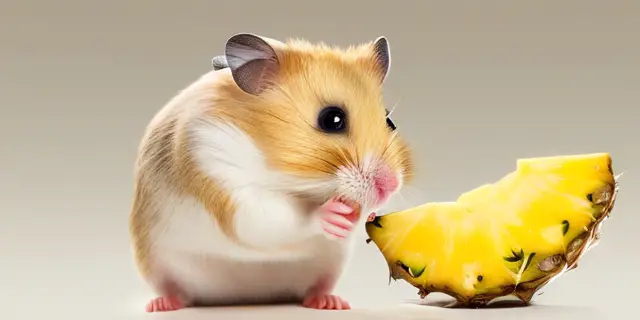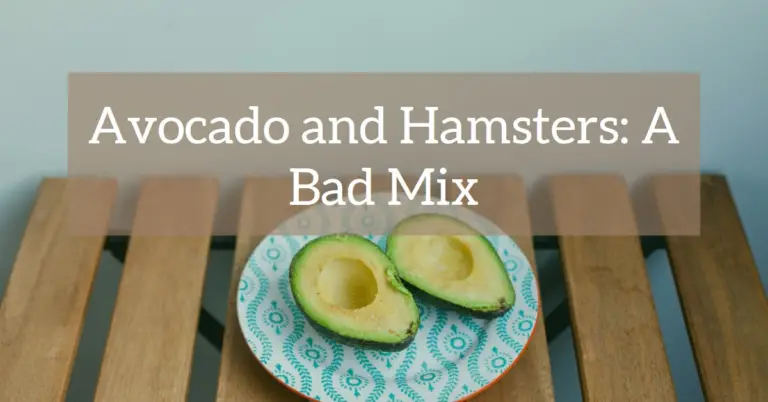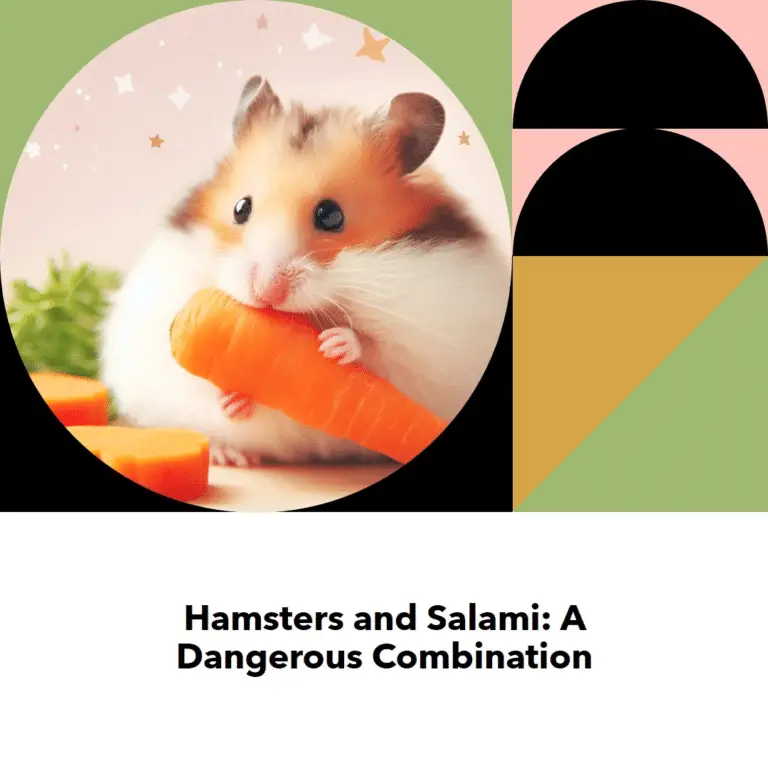Introduction
As a responsible hamster owner, ensuring your furry friend receives a balanced and nutritious diet is of utmost importance. Hamsters are omnivores, capable of consuming a variety of foods, but it’s essential to understand which ones are safe and beneficial for their health. One question that frequently arises is whether hamsters can eat pineapple. In this comprehensive guide, we’ll delve into answering this question, discuss the potential benefits and risks associated with feeding pineapple to hamsters, and provide valuable tips on how to safely incorporate it into your pet’s diet.
Can Hamsters Eat Pineapple?
The Short Answer
The straightforward answer is yes, hamsters can eat pineapple in moderation. Pineapple is not toxic to hamsters and can be a safe and occasional treat when offered in appropriate portions. However, it’s crucial to remember that a hamster’s primary diet should consist of high-quality commercial hamster food, supplemented with fresh fruits and vegetables. Pineapple should be regarded as an occasional treat rather than a staple component of their diet.
Nutritional Benefits of Pineapple
Vitamin and Mineral Content
Pineapple is a nutrient-dense fruit that can provide several health benefits to hamsters when consumed in moderation. It is an excellent source of vitamin C, which plays a vital role in supporting a hamster’s immune system and overall health. Pineapple is also rich in manganese, a mineral that supports bone health and aids in the metabolism of proteins and carbohydrates. Additionally, it contains small amounts of vitamins B6, folate, and potassium, which contribute to a hamster’s overall well-being.
Fiber and Hydration
Pineapple is a good source of dietary fiber, which can aid in maintaining a healthy digestive system for your hamster. The high water content in pineapple also makes it a hydrating treat, helping to ensure your pet stays well-hydrated, especially during warmer months when water intake may decrease.
Potential Risks and Precautions
Sugar Content
While pineapple offers several nutritional benefits, it’s essential to be aware of the potential risks associated with its consumption. Pineapple is a sweet fruit, containing natural sugars that can be detrimental to a hamster’s health if consumed in excessive amounts. Too much sugar can lead to weight gain, obesity, and the development of related health issues such as diabetes.
Acidity and Digestive Issues
Pineapple’s high acidity can also pose a risk to hamsters if consumed in large quantities. Excessive acidity can cause digestive discomfort, diarrhea, and potential dehydration. It’s crucial to limit the amount of pineapple offered to your hamster and monitor their reaction closely.
Choking and Intestinal Blockage Hazards
When feeding pineapple to your hamster, it’s essential to remove any tough or stringy parts, as these can pose a choking hazard or lead to intestinal blockages if ingested. Always ensure that the pineapple pieces are small enough for your hamster to consume safely.
Serving Size and Frequency
Recommended Portions
When introducing pineapple to your hamster’s diet, it’s crucial to start with small portions and closely monitor their reaction. A general guideline is to offer no more than one or two small pieces of pineapple, approximately the size of a pea, once or twice a week as a treat. Overfeeding pineapple can lead to obesity, digestive issues, and other health problems.
Moderation is Key
It’s essential to remember that hamsters have small stomachs, and their diets should primarily consist of high-quality commercial hamster food, supplemented with fresh fruits and vegetables. Pineapple should be considered an occasional treat and should not replace a balanced and varied diet.
Incorporating Pineapple into Your Hamster’s Diet
Gradual Introduction
If you decide to incorporate pineapple into your hamster’s diet, it’s crucial to do so gradually and with caution. Start by offering a tiny piece of pineapple, no larger than a pea, and observe your hamster’s reaction. If they seem to enjoy it and have no adverse reactions, you can gradually increase the portion size over time, while still adhering to the recommended serving guidelines.
Rotating Treats
To ensure your hamster receives a varied and well-rounded diet, it’s advisable to rotate the treats you offer. Pineapple should not be the only fruit or treat in their diet. Incorporate other safe fruits and vegetables, such as apples, carrots, cucumbers, and leafy greens, to provide a diverse range of nutrients.
Removing Uneaten Portions
Remember to remove any uneaten portions of pineapple from your hamster’s cage to prevent spoilage and potential health risks. Fresh produce can quickly turn, and consuming spoiled food can lead to various health issues for your furry friend.
Alternatives to Pineapple
Other Safe Fruits and Vegetables
While pineapple can be a safe treat for hamsters in moderation, there are many other healthy and suitable alternatives to consider. Some excellent options include small pieces of fresh fruits like berries, melons, and apples, as well as vegetables such as carrots, cucumbers, and leafy greens. Each fruit and vegetable offers its own unique set of nutrients, so variety is key.
Whole Grains and Proteins
In addition to fruits and vegetables, you can offer small amounts of whole grains, such as oats or whole wheat bread, as well as small pieces of cooked lean proteins, like chicken or turkey, as occasional treats. These options can provide essential nutrients like fiber, protein, and healthy fats to supplement your hamster’s balanced diet.
Gradual Introduction of New Foods
Whenever introducing a new food to your hamster’s diet, it’s essential to do so slowly and in small quantities to monitor their reaction. Some hamsters may have sensitivities or intolerances to certain foods, so it’s crucial to observe their behavior and digestive health closely after offering a new treat.
Common FAQs About Hamsters and Pineapple
Can hamsters eat pineapple skin?
No, hamsters should not eat pineapple skin. The tough, fibrous skin can pose a choking hazard and may cause digestive issues if ingested. Always remove the skin before feeding pineapple to your hamster.
Can hamsters eat canned pineapple?
No, canned pineapple is not recommended for hamsters. Canned fruits often contain added sugars, preservatives, and other ingredients that can be harmful to your hamster’s health. Stick to fresh, ripe pineapple for the safest and most nutritious option.
Can pineapple cause diarrhea in hamsters?
Yes, if consumed in excessive amounts, pineapple’s high acidity and sugar content can potentially cause diarrhea and digestive discomfort in hamsters. It’s essential to feed pineapple in moderation and monitor your hamster’s reaction closely.
Can hamsters eat pineapple leaves or stems?
No, hamsters should not consume pineapple leaves or stems. These tough, fibrous parts can pose a choking hazard and may cause intestinal blockages if ingested. Only offer the soft, edible flesh of the pineapple to your hamster.
Conclusion
In conclusion, hamsters can safely eat pineapple in moderation as an occasional treat. Pineapple provides essential nutrients like vitamin C, manganese, and dietary fiber, which can contribute to your hamster’s overall well-being. However, it’s crucial to exercise caution and moderation when feeding pineapple due to its high sugar content and acidity, which can lead to obesity, digestive issues, and other health problems if consumed in excess.
Always offer fresh, ripe pineapple in small portions, removing any tough or stringy parts to prevent choking or intestinal blockages. Remember to prioritize a balanced and varied diet consisting primarily of high-quality commercial hamster food and fresh fruits and vegetables. By following these guidelines, you can safely incorporate pineapple into your hamster’s diet while ensuring their continued health and happiness.



